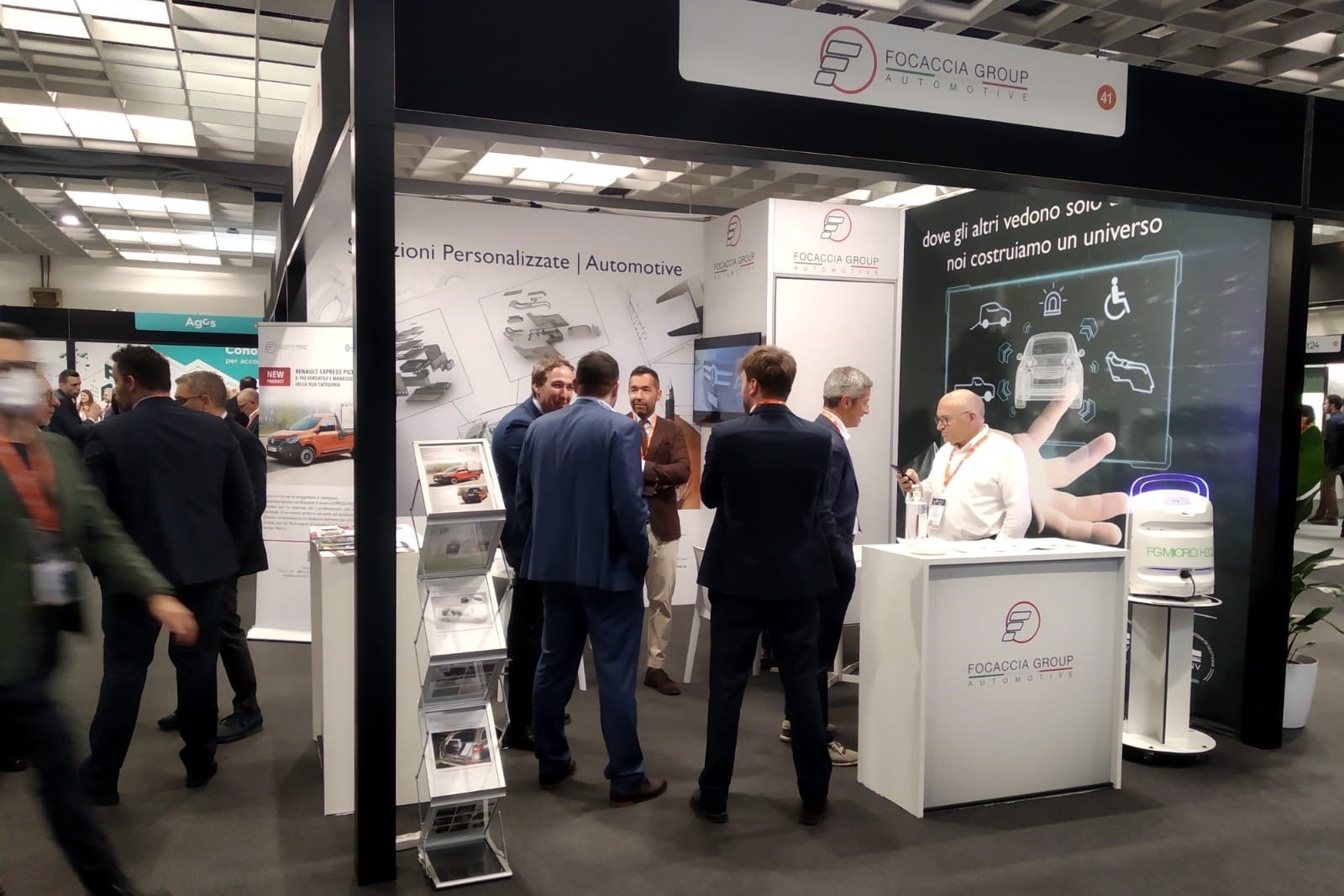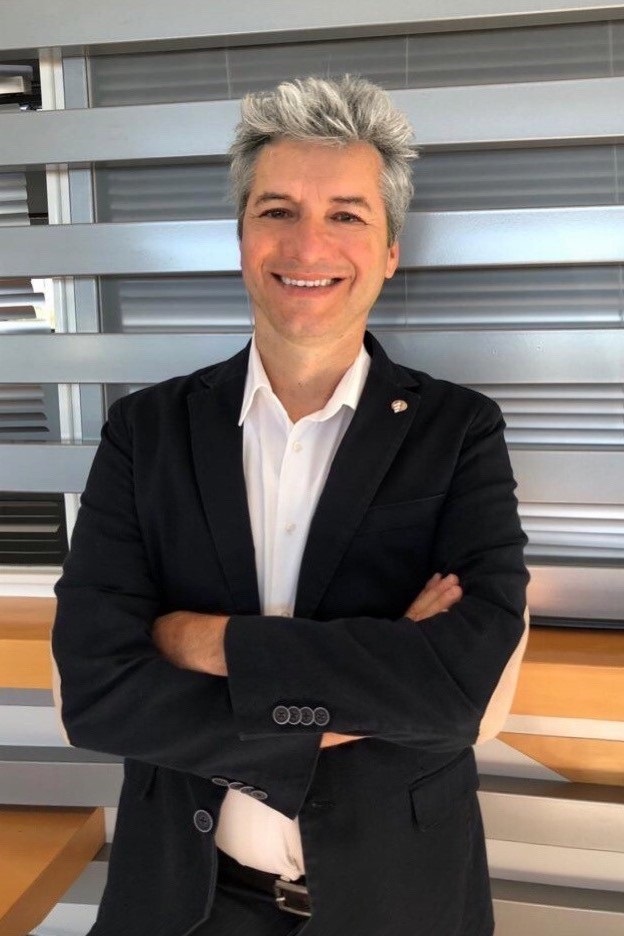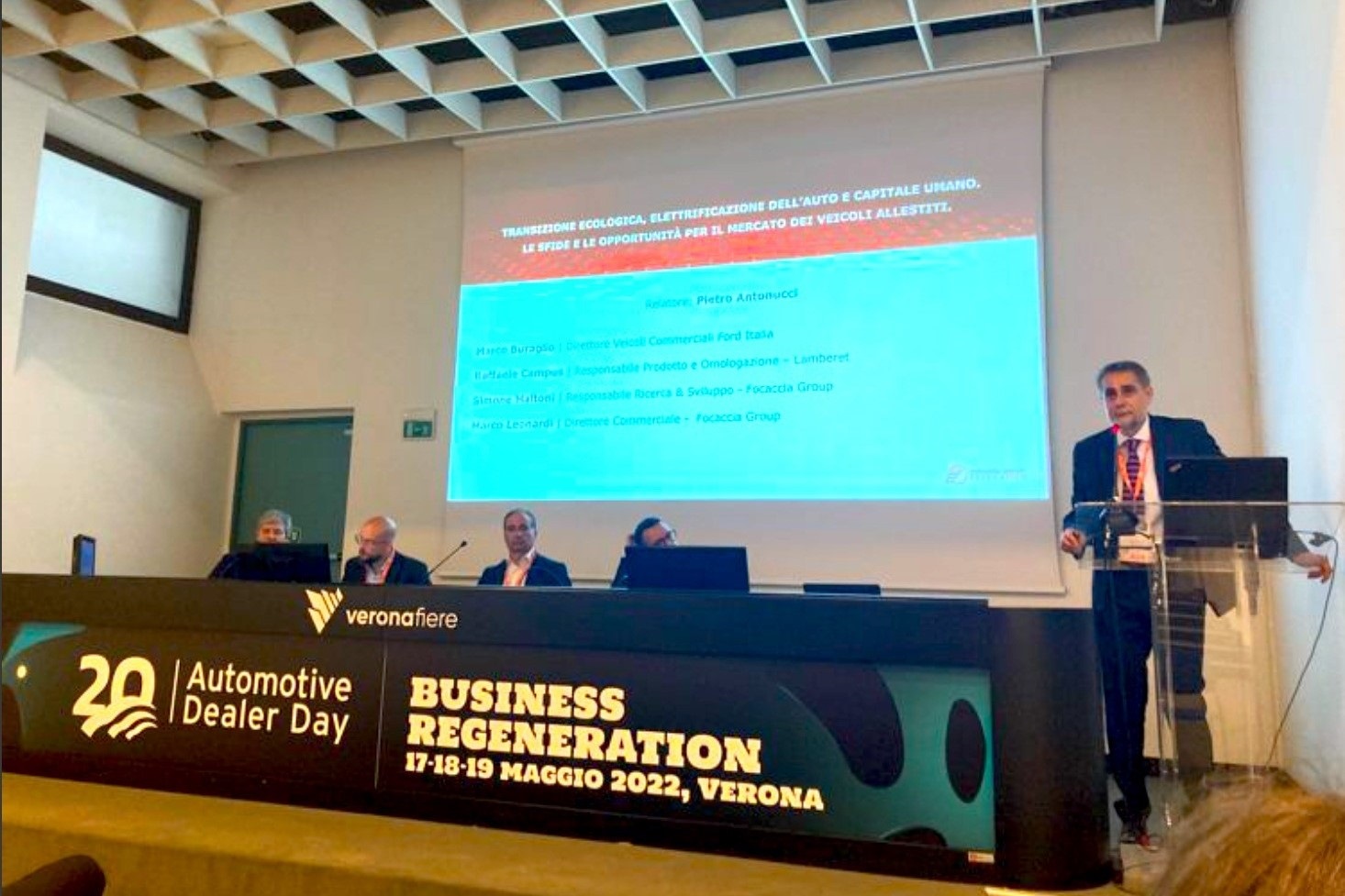
Automotive Dealer Day: interview with Marco Leonardi of Focaccia Group
Focaccia Group, the only company fitting out vehicles present at the Verona fair, granted Emergency Live an interview with Marco Leonardi, the group’s sales director
An important contribution to understanding the near future of the special vehicles market, as already mentioned, between the evolution to electric and the absence of vehicles.
Good morning Marco, we are here at Automotive Dealer Day, Focaccia Group is present at this event. A very simple question, why did you decide to be there?
 This is the second edition we are taking part in, our objective is to make ourselves known, above all, to the dealer networks, at a time when there is a major evolution in their contracts, to understand current events from their point of view and to develop effective partnerships in the territory.
This is the second edition we are taking part in, our objective is to make ourselves known, above all, to the dealer networks, at a time when there is a major evolution in their contracts, to understand current events from their point of view and to develop effective partnerships in the territory.
This is the right place for this.
Our equipment, being developed for manufacturers, is always certified and homologated.
We bring quality and reliability, guaranteed by Italian and European standards, and this is an important element for dealers and customers, because few in Italy today are able to do this.
Sustainability is one of the focuses of the event. It is no coincidence that you also organised a dedicated workshop: could you give us some insights into this topic?
Our group has always been based on two cornerstones: being up-to-date and trying to anticipate market trends, in order to answer the questions we will have to answer.
Electric vehicles are having a big impact, also in the world of special equipment.
Battery management will change the transformation of the vehicle.
In the Workshop we addressed this topic by trying to understand what it takes to switch to fully electric motors.
The end product is not enough, we need structures and market logic that are also sustainable, beyond the environment.
The end product must be sustainable for the owner, both economically and in terms of mobility management.
The situation, in my opinion, is confused at the moment.
In fact, if the electric vehicle allows the reduction of emissions in large cities, its production cost and energy do not seem to be as environmentally sustainable.
We know that Focaccia Group is also entering the ambulance market: do you see a transition to full electric in this sector too?
The opportunities are undoubtedly there. We must, however, work on the autonomy of the vehicles.
An emergency vehicle must be efficient. It will be necessary to create an effective combination of ‘full electric’ and rescue.
Large vehicles today do not guarantee high autonomy.
There is talk of 200 km declared, but considering the large amount of energy absorption of an ambulance this figure will drop.
This problem is the challenge of the near future.
Certainly there are already situations in which the vehicle can be used, for example for 118 points operating in city centres.
Two hundred kilometres on this type of route is more than enough.
It will be important to understand how the fleet will be managed, a cultural change is necessary.
There will be ambulances suitable for certain requirements and others ready for other types of scenarios.
I repeat, what we are facing is a cultural evolution of everyone, from the fitters to the end customer, even the associations will have to make more detailed analyses on the use of their vehicle fleets.
What about the hybrid solution?
From my point of view it is a panacea.
They say they are environmentally friendly, but how long can I really get the vehicle to work in this mode?
Then there are different hybrid solutions, those that need recharging and those that do not, more autonomous than the former because it does not need dedicated facilities, but with a different impact, the thermal part being an integral part of the driving function.
Of course the hybrid guarantees greater autonomy, that is intuitive.
What innovations have you brought to this fair?
The Pick Up built on Renault Express, a project that gives continuity to an idea developed with the manufacturer on the Dacia Dokker Van.
We encountered interest from the very first day of the fair from dealers, even those not connected to the Renault parent company.
Why? Because it is unique, it has no competition, being built on a normal commercial vehicle, not 4×4, but a vehicle designed for work or leisure.
It is an excellent solution for companies, artisans, farms and also for emergency, fire-fighting, above all, for those facilities that work in non-mountainous areas.
It could also become very useful for Civil Defence or private companies, in the field of disinfection, as we have recently seen in China for the reality that has unfortunately overwhelmed us all.
It is a very versatile vehicle.
I see that you have also brought your sanitiser, which has already been presented in our magazine?
Yes, we are very keen on it.
It is one of the few certified products in the sector, which a European law, which came out just last week, will oblige us to have for this equipment as well.
This is an important cultural change, which will allow us to talk about the importance of certifications, of compliance with the rules.
The customer will also have to understand this.
It will also happen for ambulances, for which we have already studied an integrated system, and our sprayer is on its way to be installed in circulating ambulances.
Thank you Marco, from Emergency Live and its readers.
Read Also:
Emergency Live Even More…Live: Download The New Free App Of Your Newspaper For IOS And Android
Focaccia Group. A Story That Has Always Looked To The Future!
Focaccia Group Enters The World Of Ambulances And Proposes An Innovative Sanitisation Solution
Automotive Dealer Day 2022: A Future That Also Concerns Emergencies



